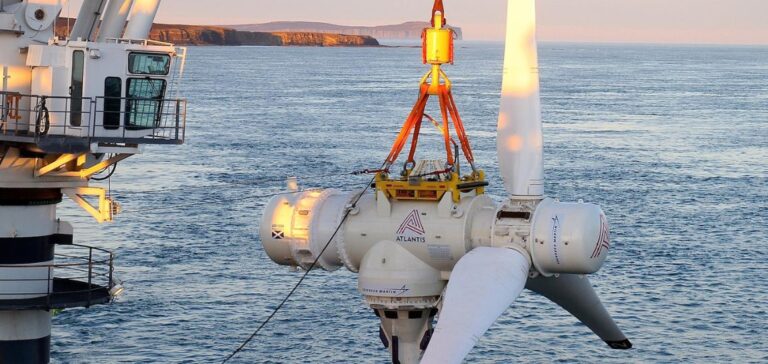SAE announces that it will accept the sale of a majority interest in its Advanced Tidal Engineering and Services (ATES) division.
Tidal energy
SAE announces that it has agreed to sell a majority stake in its ATES division to focus on tidal power. The company will focus on the development of the MeyGen site. In addition, the company is committed to providing maximum returns to its shareholders.
This sale is a management buyout. It will allow the new company Proteus Marine Renewables (Proteus) to expand its product and service offering. SAE, however, retains a minority interest in Proteus.
A minority stake in SAE
SAE also agrees to contracts to ensure the provision of ongoing services. They will allow Proteus to provide ongoing support to the operating MeyGen tidal facility. For example, Graham Reid, CEO of SAE, states:
“We are proud to have developed the ATES business into what it is today and wish Drew and the team every success for the future. A key element of the sale is the agreements in place that ensure our existing tidal energy projects will continue to operate as normal, while allowing us to focus on delivering the MeyGen site, the home of tidal energy.”
Proteus will also focus on completing its next technology development cycle. Thus, the company is banking on Japan and France, where it is the majority shareholder of Normandie Hydroliennes. In addition, the group aims to deploy a 12MW pilot network in 2025.






















